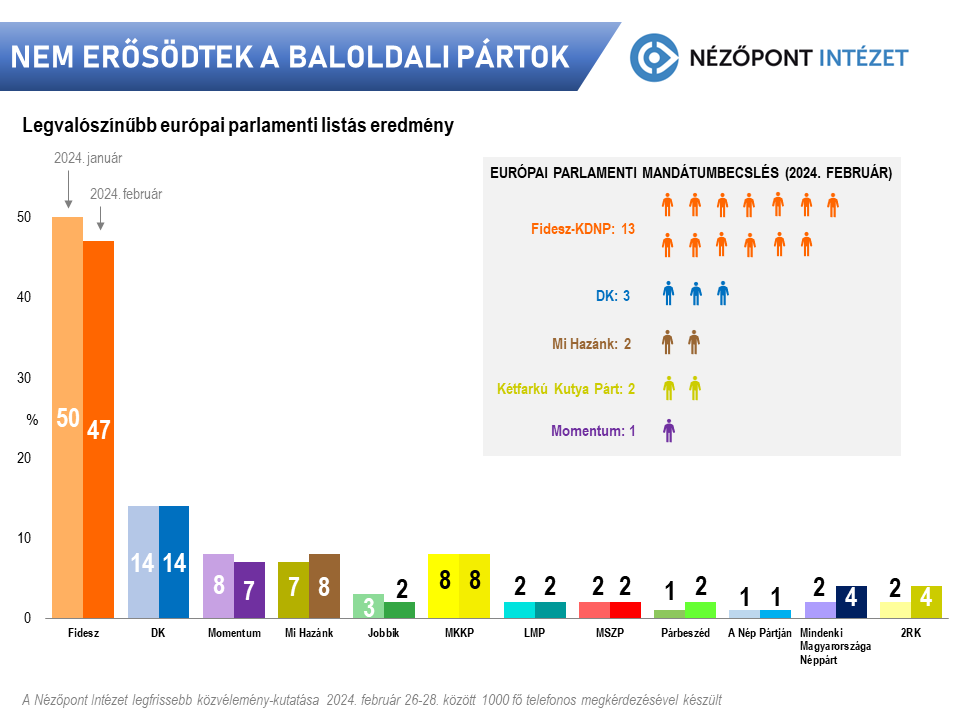According to a recent opinion poll conducted by the Nézőpont Institute, the left-wing parties have not gained strength in the past month, despite the impact of the pardon case. The results show that Fidesz-KDNP (47 percent) would win by a landslide if the European Parliament elections were held this Sunday.
In 100 days, on 9 June, European Parliament elections will be held in Hungary. On this occasion, the Nézőpont Institute has conducted a survey to find out how the balance of power among the parties has changed. The results of the survey show that the left-wing parties did not gain strength after the pardon case, which had no impact on Fidesz’s leading position.

The Fidesz-KDNP list would win 47 percent of the vote if the European Parliament elections were held this Sunday, which represents a difference within the margin of error compared to its support in January (50 percent). This result would ensure that the governing parties could retain their thirteen seats they won in the European Parliament in 2019.
Support for the left-wing parties has not increased compared to the previous month. The parties that run together on a joint list in the 2022 parliamentary elections (and achieved a list result of 36 percent) have a combined support base of 29 percent, almost the same as in January (30 percent).
With 14 percent of the vote, the Democratic Coalition shows no shift from its January support. However, this would no longer be enough to keep the four seats it won in 2019, due to the growing support base of other opposition parties that have won seats in the European Parliament.
Momentum’s 7 percent support (8 percent in January) shows that it has not been able to take advantage of the events of the past month, and with this result it would only be able to win one of the two seats it won five years ago.
The Our Homeland Movement (8 percent) and the Hungarian Two-Tailed Dog Party (8 percent) could both reach the entry threshold; they would gain two-two seats in the European Parliament. On the other hand, the MSZP (2 percent) and Jobbik (2 percent) would certainly lose representation in Brussels. However, all the above does not represent a significant difference compared to the January figures, as all parties would achieve almost the same result as at the beginning of the year.
Among those parties that did not exist five years ago, the ‘Everybody’s Hungary People’s Party’ (4 percent) and the ‘Second Reform Age’ (4 percent) have made it close to the threshold for entering the European Parliament, while the ‘On behalf of the People’s Movement’ is still at 1 percent.
Methodology
The latest opinion-poll of the Nézőpont Institute was conducted between 2 and 5 of January, and 26 and 28 of February, 2024, by interviewing 1,000 respondents by phone. For all surveys, the sample is representative of the adult population (18 years and older) by gender, age, region, type of settlement and education. In case of a sample size of 1000 respondents and a confidence level of 95 percent, the sampling error is ± 3.16 percent. Respondent base = Hungarian voters, respondents who are willing to participate in the European Parliament elections.
